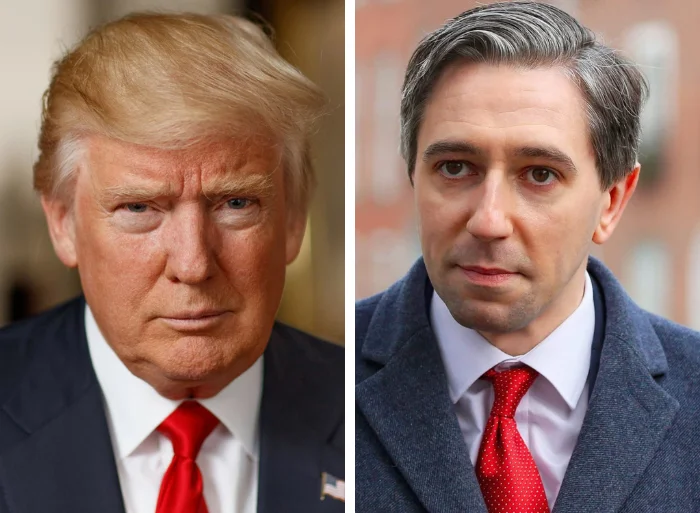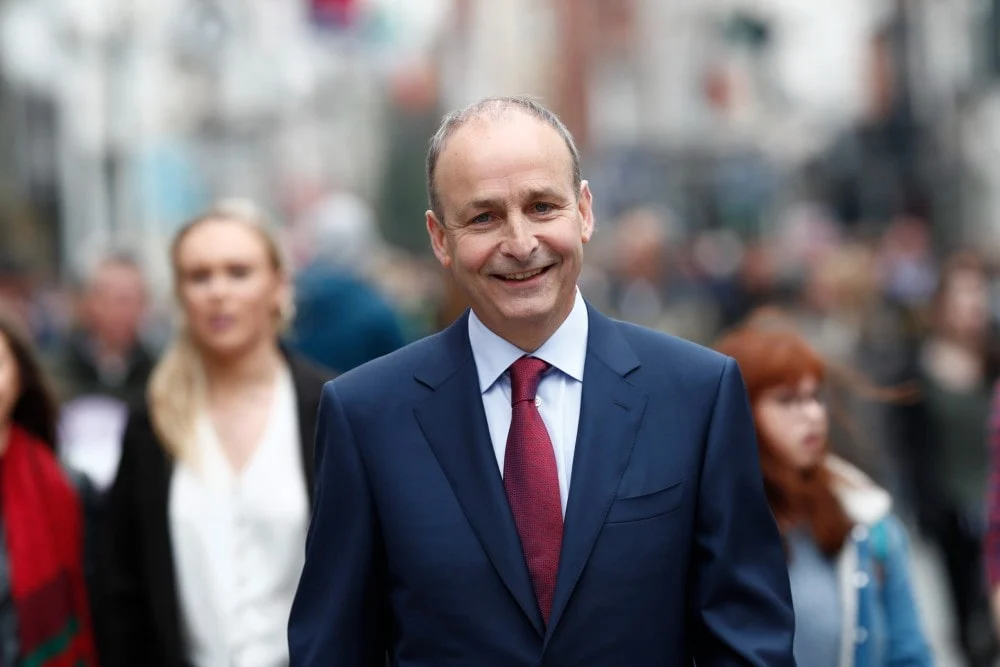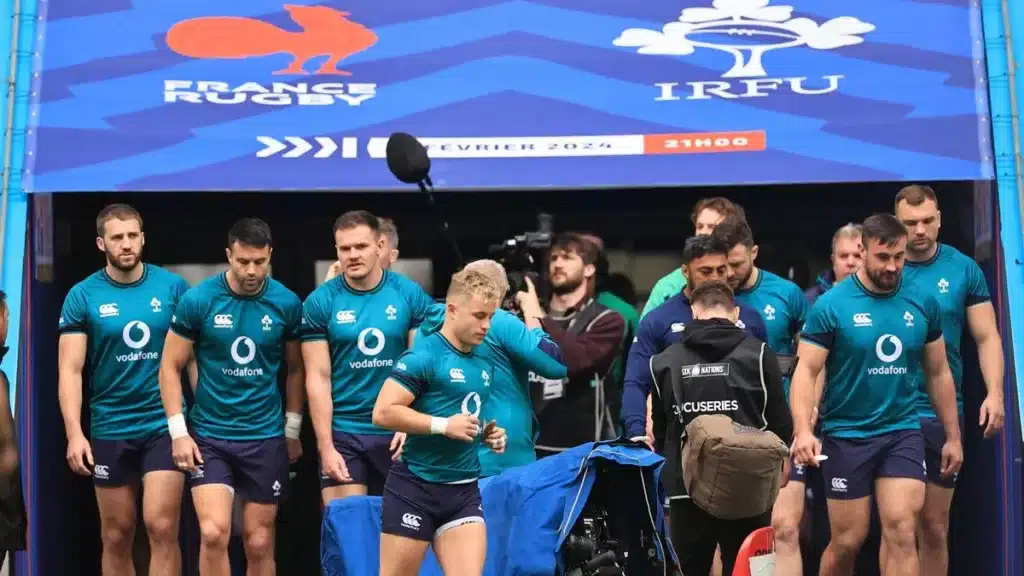Ireland Ready to Deepen Ties with US, says Taoiseach

The Taoiseach has assured that Ireland is ready to deepen ties with US after congratulating Donald Trump on his victory in elections 2024.
Taoiseach Simon Harris and Tanaiste Micheal Martin have pledged to work in collaboration with the United States to maintain the strength of the historic links that both regions have for years.
Taoiseach assured to deepen ties with US
Simon Harris said,
“I congratulate President-elect Donald Trump on his victory in the US presidential election”.
He ensured that the deep historic bonds that the United States and Ireland share would continue to remain the same, and even deepen further in the coming times under Trump’s administration.
The Taoiseach was positive that with Trump’s new vision, both countries would be able to fortify democracy and international law together, particularly to tackle the challenges that the current world is facing amidst war-struck times.
Also, the Taoiseach admitted that the US’s struggling economy and immigration were two highlighted issues that needed a solution with the US Presidential elections that have now decided the fate of the country.
Simon Harris made a statement that the world is facing some serious issues and needs some strong leadership to find solutions for them. With 100 years of legacy that Ireland has always shown with the US and people-to-people connections, the support would remain strong, Mr Harris declared.
Micheal Martin shares the same thoughts
Micheal Martin was speaking to the news sources when he explained that the differences between the two Presidential candidates were distinct in their own remarkable way. However, it still reflected that “Democrats were weaker on these issues while the Republicans were stronger”.

He was of the view that inflation does play a significant part in shaping the circumstances of a country. However, this is not something new since every state has gone through a high inflationary period for the past two years, he said.
Mr Martin added that the campaign had been a “rollercoaster” and that Kamala Harris’s late entry to the Presidential race was a tough decision.
Ireland needs to be careful
Mr Martin elucidated that Ireland needs to take careful steps in how it interprets the entire situation as the new President is now elected. It would determine the ties between both countries and would outline the rest of the future bonding with the United States.
He knows that America has been a strict believer in the establishment and strengthening of US-based businesses within their own country as well as the rest of the world.
Micheal Martin acknowledged the fact that the realities of the world of economies and access factors to the markets in Europe, Asia and Ireland are critical.
He said,
“Ireland has been a very effective headquarters and base for many pharmaceutical, biopharma, medical device and technology and financial companies for the US in terms of their reach into Europe”.
He was satisfied with the good working relationship that Ireland had with Trump from 2016 to 2020. He is confident that similar terms would continue in the present Trump administration and Ireland would now engage closely.
While talking about the business and economic trends, he said that there is now more of a “protectionist” trend. It means that countries want to promote their local businesses rather than the international ones. And the same is prevalent in America for the last ten to fifteen years, he highlighted.
He rationalised that there still remains a journey and the ties with America would justify how it all transpires for Ireland.
He assured that Ireland is open to strengthening trade ties with the United States and deepening “fair and free trade” terms with it. Protectionism wouldn’t be a good option for Ireland, he stressed, as this is a more general system adopted across the globe.
View this post on Instagram
In Ireland, he noticed that several US companies have been working for long and have made “substantial investments”, which have been greatly acknowledged.
Further, he awaits the next step of the United States on whether to withdraw from the OECD framework or not.
Ireland’s other political leaders are sceptical
There were mixed reactions from other political leaders of Northern Ireland when Trump was elected as the new US President.
SDLP
Claire Hanna, SDLP leader, clarified that there is no serious concern from their side on how Trump would lead his country and how that will have an impact on Ireland.
She explained that she was more concerned about the people of the United States and their fears for their own future. She held this view because she thought Trump was someone who had not gained much respect from his people, even including those from the high office. The same office would be under his control once again which might give rise to various speculations, she said.
Miss Hanna did acknowledge the fact that the elections had been transparent and that the outcomes were clear.
She now wanted the US’s stance on Gaza, Ukraine, the United States and the rest of the world. The blunt decision-making tactics of Trump might not be helpful as these are critical matters that the Trump administration should be handling adeptly, she added.
TUV
Another political figure, Jim Allister, TUV leader, considers Trump a better candidate. He was content that America is a country where people can make their own choices, unlike Ireland, where the laws of more than 300 areas are crafted in a foreign parliament.
Mr Allister notified the issues that would impact Northern Ireland would be some of those that the United States would make in future, such as no taxation without representation. He told that this would be something that would shape his future thoughts when it comes to his own country.
Labour Party
Ivana Bacik from the Labour Party openly called Trump’s elected Presidency a “disaster”. She construed that Trump would be problematic for Gaza, for climate, women’s and immigrant’s rights, and even for the entire Europe.
The people of the United States have written their own fate that would have a worldwide impact, she said. She emphasised that the Taoiseach should provide a briefing on the possible “risk assessment of Trump’s win for Ireland”. This would help in outlining the possible risks and their pertinent outcomes for Ireland.
FAQs
1. What was Taoiseach Simon Harris’s response to Donald Trump’s 2024 election victory?
Taoiseach Simon Harris congratulated Donald Trump on his victory, expressing optimism about strengthening the historic ties between Ireland and the United States. He pledged to work closely with the U.S. on shared interests, particularly in upholding democracy and addressing global challenges.
2. How did Tanaiste Micheal Martin view Trump’s win?
Micheal Martin echoed the Taoiseach’s sentiments on cooperation with the U.S., while highlighting differences between the candidates on key issues like inflation and protectionism. He emphasized Ireland’s commitment to fair and free trade, as well as the need to maintain strong economic ties with the U.S.
3. What are the primary areas of cooperation between Ireland and the U.S. under Trump’s leadership?
Key areas include trade, investment, and strengthening democratic institutions. Ireland is particularly focused on supporting U.S.-based companies operating in Ireland and enhancing bilateral economic partnerships while addressing common global challenges.
4. Did any political leaders in Northern Ireland express concerns about Trump’s election?
Yes, several leaders voiced concerns. Claire Hanna of the SDLP expressed apprehension regarding Trump’s leadership style and its potential impact on U.S. domestic and foreign policies. She hopes for a clear U.S. stance on issues like Gaza and Ukraine. Ivana Bacik of the Labour Party called Trump’s presidency a “disaster” and requested a risk assessment for Ireland.
5. How did Jim Allister of the TUV react to Trump’s election?
Jim Allister viewed Trump as a positive choice, contrasting the democratic process in the U.S. with Northern Ireland’s reliance on foreign legislation. He expressed an interest in seeing how U.S. decisions on governance, particularly “no taxation without representation,” might resonate in Northern Ireland.
LATEST NEWS
DISCOVER MORE






